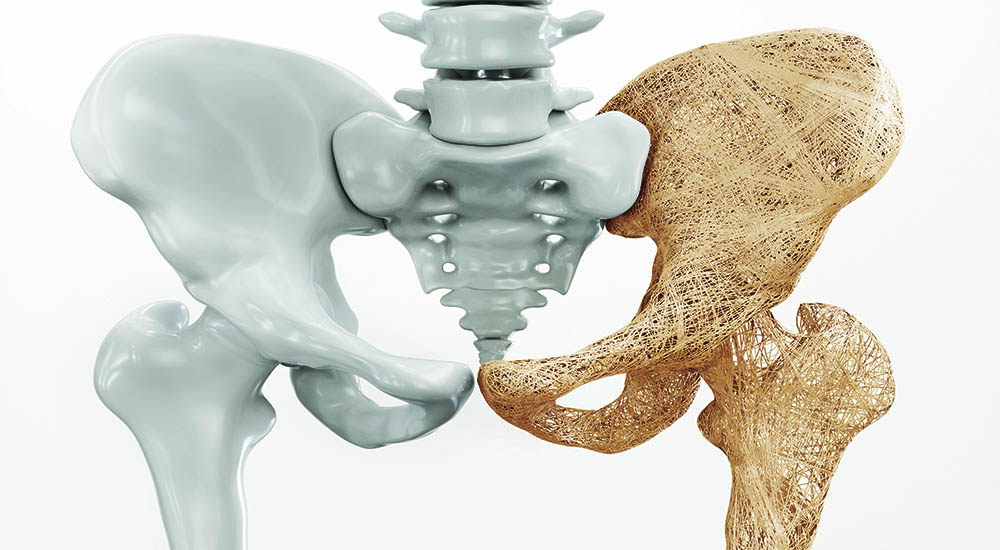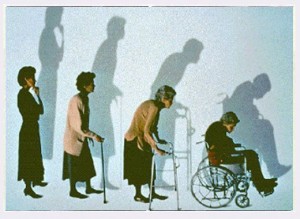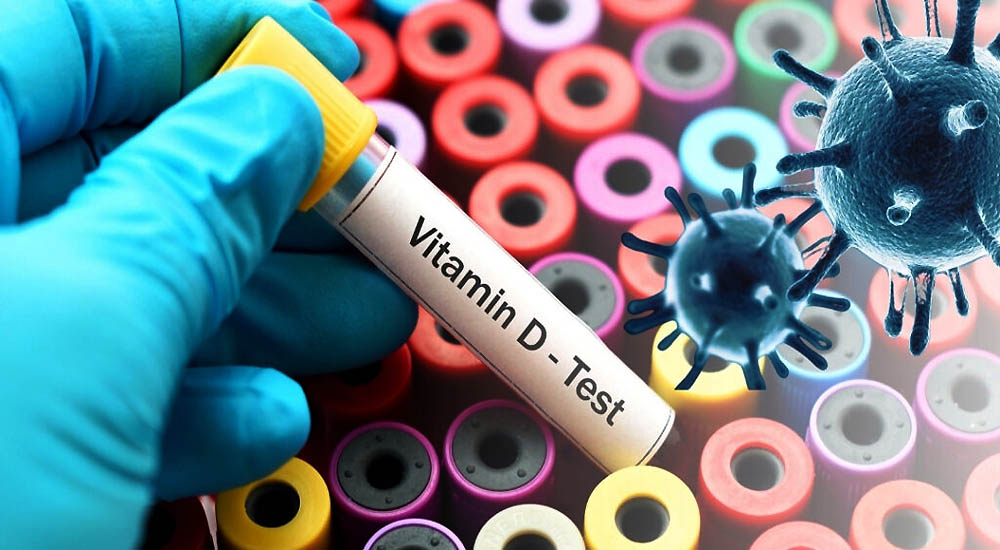Preventing and Treating Osteoporosis

 Half of all Women Suffer from Osteoporosis
Half of all Women Suffer from Osteoporosis
Osteoporosis (or brittle bones) is the 11th leading cause of death. 1 in every 2 women and 1 in every 4 men are affected.
As a Clinical Nutritionist, I see many women who are trying to avoid the debilitating effects of osteoporosis that they have witnessed in their mothers or other female relatives. We sometimes think of our bones like the walls in a room – they hold things up but we consider them rather inert.
On the contrary, our bones are very much alive, constantly remodeling themselves by getting rid of old bone and rebuilding with new. Healthy bones also have a direct effect on our immune system since all our red and white blood cells are made in the marrow of our bones.
Drug Treatment for Osteoporosis is not Effective or Safe
There are some drugs available to “treat” osteoporosis but they are laden with side effects, some even cancerous. One of the major side effects is actually creating more brittle bones as the drugs are designed to slow the rate of turnover of the bone cells – resulting in old bone cells hanging around longer than they should.
Follow-up bone density tests may “look” like improvement is occurring but the bone is actually brittle, resulting in dangerous fractures. Is due to such dangerous side effects that our clinical nutrition department does not encourage the use of these medications, in most cases.
Osteoporosis Risk Rises with Digestive Problems
A study revealed that what triggers the shift from healthy bone to osteoporosis is inflammation. You’ve seen inflammation as the redness and soreness associated with a cut. But internal inflammation that affects organs is a known initiator of many diseases including heart disease, diabetes, and cancer.
Any chronic inflammation is a dangerous sign so it is not surprising that healthy bone would deteriorate to the unhealthy bone in the presence of inflammation. Let’s look at how inflammation and osteoporosis are related to digestive function.
A recent article entitled “When the Gut Talks to Bone” revealed that certain genes related to the development of bone are activated by serotonin, a substance that is predominantly made in the gut, especially in the presence of inflammation! To summarize – the more inflammation is present, the more the gut makes serotonin which in turn leads to bone breakdown or osteoporosis.
Decrease Inflammation in the Gut & Get Healthier Bones!
What does this all mean? It means that lowering inflammation in the body is critical in the prevention of osteoporosis (not to mention heart disease, cancer, and diabetes, but we’ll leave those connections for another article.) How do we lower inflammation?
First, we need to discover what is causing it. One of the biggest culprits is gluten and other food sensitivities. Gluten in particular not only creates local inflammation in the gut but it creates body-wide inflammation in sensitive individuals. And remember, current research considers more than 10% of the population to be gluten sensitive, with an additional 4% suffering from celiac disease.
In the New England Journal of Medicine 2007, it stated that celiac disease inflamed the gut, thereby creating a bone loss. So this association is established in the research field. Now we just need to ensure that more clinicians know it and our risk for osteoporosis could be diminished.
How Can You Reduce Inflammation?
The good news is that reducing inflammation is something you have control over. What can you do?
1. Find out via a bone density test if you are suffering from osteoporosis or osteopenia (a milder form of osteoporosis). If it runs in your family you should also follow the rest of these steps as a source of prevention.
2. Find out if you’re gluten intolerant or dairy intolerant. Those are the two most common food sensitivities that affect the bones.
3. Find out if your intestines are inflamed via a lab test.
4. Change your diet to eliminate any foods that are found to be causing inflammation plus increase the natural anti-inflammatory foods such as organic vegetables and fruits.
5. Take needed supplements such as omega-3 fatty acids, that help reduce inflammation, as well as other supplements to help heal the lining of the intestine, as needed.
6. Get a lab test to confirm that your intestines are now healed and no longer inflamed while monitoring the status of your bone density.
These tools are within your reach. Further, remember that gluten intolerance reduces the absorption of certain key vitamins and minerals, one of which, Vitamin D, is very critical for bone health. Have your Vitamin D levels evaluated and supplement as needed. It is worth noting that the concept of taking more calcium and drinking more milk has not been found to be the answer to normalizing bone health.
In fact, the countries that consume the most dairy products and calcium have the highest rate of osteoporosis while countries with the lowest consumption of both enjoy healthy bone density. Ensuring you get good dietary calcium from dark green vegetables, sesame, tahini, and seaweed while avoiding calcium supplements and dairy products have been proven to be more beneficial to bone health.
Osteoporosis is a very debilitating disease. All too often we see individuals who have been suffering from it for many years when a program of clinical nutrition, begun early, could have made a big impact in restoring healthy bone. If you have osteoporosis or it runs in your family please feel free to contact us for assistance. Root Cause Medical Clinic is a destination clinic and we treat patients from across the country as well as internationally. We are here to help!
Do you need help with your health?
We have the diagnostic and testing tools, the clinical experience, and a different medical approach to discovering the root cause of why you have the symptoms that are bothering you. As long as you are ready to make some dietary and lifestyle changes, we can help you. We will "hold your hand" through the changes, step by step, to make each step an easy one. We are located in Clearwater, FL, at 1000 S Ft Harrison, at the corner of Ft. Harrison Ave. and Magnolia St. There is plenty of parking space directly accessible from Ft Harrison. If it is not convenient for you to come to Root Cause Medical Clinic, we offer telehealth/telemedicine consultations to residents of certain states. Call us for details.
Contact us for a Consultation – Call 727-335-0400

Dr. Vikki Petersen DC. CCN
Founder of Root Cause Medical Clinic
Certified Functional Medicine Practitioner
Dr Vikki Petersen is a public speaker, author of two books, several eBooks and creates cutting edge content for her YouTube community. Dr Vikki is committed to bringing Root Cause Medicine and its unique approach to restoring health naturally to the world.
Ask a Doctor
Have a health concern you'd like to speak with a doctor about? Or just want clarity on a subject? Ask Us!

 Half of all Women Suffer from Osteoporosis
Half of all Women Suffer from Osteoporosis
